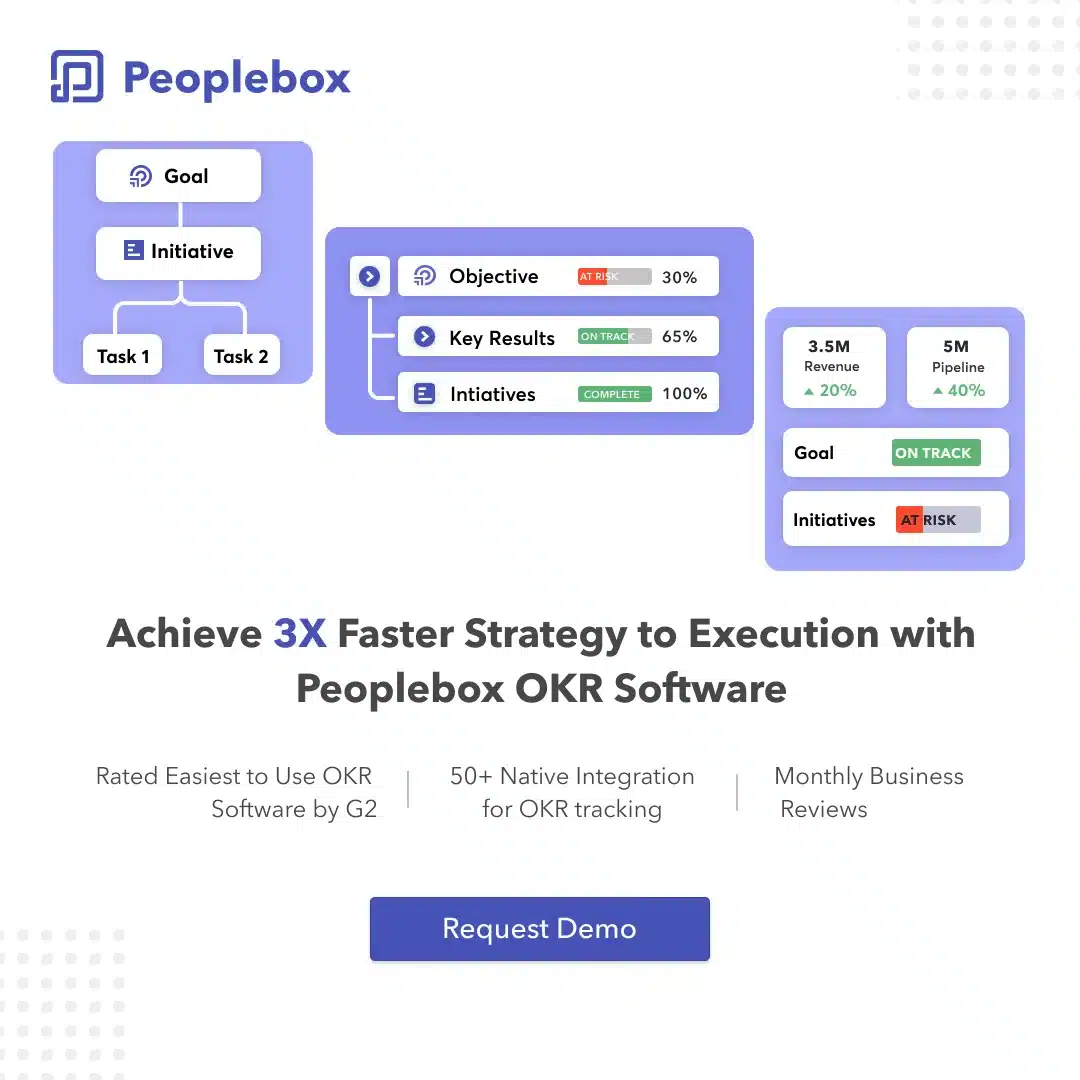Employee morale is one of those topics that look simple on the surface but has many layers once we start going deep into it.
Employees with higher morale tend to be more productive and satisfied with their work. They have a positive outlook and grow exponentially.
But how do you ensure that your employees have high morale? What can you do to keep your direct reports’ in high spirits?
At present, we are living under conditions none of us could ever imagine.
Employees have been taking care of their household responsibilities and managing their official duties as they face the threat of the Coronavrius pandemic.
Right now, every news hour comes with its set of anxiety-inducing information and every passing minute can become daunting with uncertainties.
Thus, it becomes even more essential to let your direct reports know that you’re looking out for them.
As a manager, you need to become their comforting shoulder and boost morale by being their support system.
In this article, we explore different ways to boost the morale of the employees and how you can integrate them into your company culture with simple practices.
What is employee morale?
Employee morale is a behavioural metric that shows how happy your direct reports are in their current working conditions.
It impacts productivity, attrition rate and the overall work culture of your organizations. As a manager, you are the key to implement measures that can boost the morale of your direct reports.
You are responsible for motivating your employees and inspiring them to give their best at work and achieve their personal goals.
Now the question is – is there a way to check employee morale without asking about it upfront?
To make things easier, we give you a few trusted indicators to identify employees with high morale.
5 signs of a highly motivated employee
1 Taking initiative
A direct report who believes in herself and has high morale will not hesitate in sharing suggestions, providing opinions and being proactive at work.
Taking initiative is a telltale sign of a happy and positive employee.
2 Helping the team
Someone who has high morale would always be confident of her skills and sure of her place in the team.
She will have no qualms in lending a helping hand to her colleagues and will concentrate on team goals rather than personal credit.
3 Going the extra mile
A highly motivated employee will find a sense of purpose in her work. She will be more involved, energetic and will not shy from shouldering additional responsibility.
She won’t avoid work or find excuses. You will find her giving her best to even the smallest of tasks.
4 Looking for growth opportunities
Employees with high morale will look forward to feedback and will always find ways to grow their skills.
Their goal will always be to improve their performance and find better ways of executing a task.
5 Question the status quo
A motivated employee takes pride in her abilities and her organization’s quality of work and ethics.
Thus, if she feels that there’s slack in the collective efforts of the team to provide quality, she questions the status quo and is not afraid to change the system.
Why is one on one meeting the best way to boost morale?
One on one meetings help you understand your direct reports as an individual with unique sets of dreams, challenges and inspirations.
Every individual is wired differently and comes with her share of experiences that shape her personality.
As a result, every one of us reacts differently to situations. All of us have different pain points and motivational factors.
You can find out what motivates your employees through a one on one meeting, and what negatively affects their morale.
One on one meeting is a psychologically safe space where they can confide in you with their worst fears and biggest aspirations to you.
All you need to do is build a bond with them.
The purpose of a one on one meeting is to help you and your direct report let your guard down and connect on a deeper level.
It is important to understand that your employees are more than their knowledge and skill sets.
They face their share of struggles every day and yet, try their best to contribute to their team.
At present, a majority of our population has been facing an unexpected situation where they’re facing a pandemic and are still responsible for executing their work duties from a completely different setting.
This situation makes one on one meetings even more crucial as they help you check-in and boost morale of each of your direct reports.
Employee morale is a total of small efforts that multiplies and gives birth to a happy and positive team.
One on one meetings allow you to implement these small efforts and help the employees in reaching their maximum potential.
Let us now share with you a few tips on how you can boost morale of your employees through one on one meetings.
How can you boost employee morale with one on one meetings?

Before the one on one meeting
1 Make them a recurring calendar event & never cancel
Your one on one meetings should be a recurring event in your schedule and you must put it across on your calendar.
They should only be cancelled in the wake of a dire emergency.
Your simple act of emphasizing on the regularity of the meeting will indicate your involvement in the matters related to your direct reports.
When they know that you prioritize your time with them, they will realize that their contribution matters.
Your commitment towards fostering a long-term relationship through these meetings will help you to boost morale of your direct reports.
Moreover, you cannot expect to probe deeply into your employee’s psyche unless you build a bond with them through regular meetings held over a period of time.
Your first one on one meeting will set the tone of your relationship with your direct report.
Thereafter, your consequent meetings will lead to more productive, accountable and detailed discussions.
2 Collaborate on agenda
Setting agenda for your one on one meeting not only helps you be read
y for the discussion but also leads to a more result-oriented talk.
With an agenda, you will prevent the conversation from going astray and will be able to address the most pressing issues of your direct reports.
In fact, it is a great practice to collaborate on the agenda with your direct report before the meeting.
One of the simplest ways to boost morale of your employees is to let them know that their one on one meetings is about them.
Leading CEOs also recommend collaborating on an agenda for the same reason and encourage managers to let their direct reports state their concern in it.
In a remote work set up, it becomes even more essential as you no longer meet your employee.
While working remotely, you may not be aware of your employee’s side of the story and her unique challenges concerning the change in the work setting.
Your job is to let them know that you’re willing to understand their narrative and channelize them towards better efficiency.
Setting an agenda will bring focus to the one on one meeting and encourage better participation.
Collaborating on the agenda will also develop a sense of ownership in your employees while ensuring that they’re aware of your efforts into making sure that you are driven at work.
Pro tip: Include an employee motivation meter on your agenda. Ask them to state how motivated they have been feeling in the past week and then, dedicate a specified amount of time to discuss this.
3 Set a reminder & send them one too
Letting your direct report know that your impending one on one meeting is on your mind will fill them with positivity and boost morale of your employees.
Just a casual IM saying “Hi, looking forward to our one on one in the evening” will communicate your willingness in conversing with them.
In return, they will feel valued and be enthusiastic and more open in having a frank discussion.
Pro tip: You can use one on one meeting software to set reminders and create emails for your direct reports.
Effective One on One Meetings
We built a software that automatically schedules, lets you set agenda, take notes, exchange feedback and track actions – all in one place.
During the one on one meeting
1 Begin on a positive note
A one on one meeting is different from a regular status update or a project meeting. It is more personal and intimate.
It helps in understanding the persona behind your official roles. Thus, you need to kick it off on a happy and casual note.
As we work from home, we all have been struggling with different issues and coping with new challenges. So, it is necessary to ease the tension before taking the meeting further.
When you begin a meeting with encouraging questions, you invariably boost the morale of your employees to relax and be more engaged in the conversation.
Pro tip: If you’re unsure about how to start your next one on one meeting, here’s a list of one on one meeting questions you can start with –
- “How are you doing?”
- “How is everyone at home?”
- “How was your weekend?”
- “How are you spending your free time these days?”
2 Listen, truly
As per a report by Mckinsey & company, 63% of the respondents quoted “attention from the leader” as an effective tool for motivation.
When you lend an ear to your direct reports problem you show your willingness to understand their narrative and be their ally.
Listening is also equally important during your one on one meeting. In these meetings, your direct report should be the focal point.
By listening with rapt attention, you boost morale of your employees by giving them a chance to be candid about their opinions and challenges.
As you adapt to remote work, you tend to miss out on the majority of conversations and the ongoing of your direct reports’ lives.
Thus, you need to treat one on one meeting as an opportunity to hear out your employees’ issues and let them vent out their emotions.
3 Employee recognition
A survey conducted by SHRM states that 90% of the employees feel that recognition helps in deriving more satisfaction at work.

As Dr Ashley Whillians from Harvard Business Review quotes –
What really matters in the workplace is helping employees feel appreciated.
However, another report by Gallup suggests that only 1 out of 3 US employees feel that they were recognized for their efforts in the past week.
As a manager, you need to take a stride ahead and drive the culture of gratitude and employee recognition in your organization.
A one on one meeting is a great opportunity for you to recognize your direct reports’ efforts and compliment them on their hard work and contribution.
In a one on one meeting, you will also have more time to encourage and reinforce the same positive behaviour by discussing it in detail.
Your personalized attention towards your employees’ efforts will boost morale of your direct reports like never before.
During the one on one meeting, you will also have ample time to discuss the nitty-gritty of the desired behaviour and how it contributes to the overall goal of your team.
Employee recognition becomes even more important during remote work as it helps in reinstating faith in the employees concerning their competencies and approach towards their work.
4 Talk about their career development
LinkedIn’s 2019 workplace learning report revealed a startling fact.
In the times of job-hopping, 94% of the empl
oyees admitted that they would stay in an organization if it was invested in their career development.
When you discuss your direct reports’ long-term goals and career, you convey that the organization considers them an asset and is ready to contribute towards their growth.
As per Kevin Sheridan, a New York Times best-selling author and employee engagement expert –
People want to advance in their career, rather than feeling stagnant. Whether it’s learning a new skill set, exploring new responsibilities, or getting a title change, all employees have goals. Managers need to be keyed in on those goals.
As a manager, it is your responsibility to find out what trajectory your direct report would want for their career.
You are their most approachable mentor and they would look up to you for guiding them correctly.
When a direct report knows that her manager is interested in helping her achieve her development goals, she feels motivated to contribute better and more efficiently in her current role.
A one on one meeting is a perfect opportunity to discuss your direct reports’ career goals at length.
You can help your employees’ achieve their aim by guiding them in setting clear expectations and goals for the upcoming quarter and then, for the entire year.
You can also intimate them about opportunities suitable for their competencies and utilize them better for their growth and development.
Pro tip: If you’re unsure about how to strike a career conversation, here are a few questions to help you out –
- “ What tasks do you enjoy the most?”
- “What is that one skill you would want to develop besides your current capabilities?”
- “What kind of responsibilities would you like to shoulder in the near future?”
5 Exchange feedback
One of the easiest and most effective ways to boost morale of your direct reports is by providing them with honest feedback of their performance.
Positive or constructive feedback lets them know that their work is being noticed. It motivates them to continue their momentum of work.
Similarly, when you encourage them to share their feedback on different matters, it rejuvenates their confidence in their abilities and empowers them to take ownership of their work.
As per a report, most employees consider traditional feedback systems as dated and a regular HR exercise.
This is why one on one meetings are ideal for exchanging feedback with your direct reports. They are personalized, casual and feel more genuine.
These meetings are an important tool in improving communication and establishing the right relationships with your direct reports.
They are the perfect opportunity to exchange detailed and personalized feedback.
All you need to do is open up and discuss the different aspects of your direct reports’ performance. And, there cannot be a better situation than a one on one meeting to start this conversation.
6 Discuss blockers and provide solutions
Every employee faces unique challenges in discharging their duties.
These blockers prevent them from giving their best and sometimes, even leave them feeling disengaged and unmotivated.
As a manager, you need to find out their problems and solve them to help them find their groove back.
A one on one meeting provides you with a personalized space to discuss the good, bad and the ugly of your direct reports’ work life.
You can help them identify what pulls them back from giving their best and how to overcome these blockers.
Your support in making their work-life easier can boost the morale of your direct reports by manifold.
7 Take notes

This may seem like an old-fashioned idea but taking notes conveys how serious about your conversation and its outcomes.
A one on one meeting contains in itself a plethora of confession, discussions and insights.
It is almost impossible to recall everything that is discussed in a one on one meeting.
Thus, it is important that you actively take notes during your one on one meeting.
Moreover, taking notes signifies that you’re paying attention to everything being discussed in the meeting.
Your interest and active participation are enough to boost the morale of your direct reports.
To effectively track action items, you need to create a seamless system. As Andy Grove puts it:
When [the direct-report] takes a note immediately following the supervisor’s suggestion, the act implies a commitment, like a handshake, that something will be done. The supervisor, also having taken notes, can then follow up at the next one-on-one.
8 Build a culture of accountability
Accountable refers to being answerable for your actions. When an employee is empowered with accountability, they are motivated to up their game.
A one on one meeting can help you inculcate accountability in your direct reports.
You can discuss action items to solve problems, improve performance and drive growth.
Furthermore, you must also put a reminder to follow up on these action items.
When a direct report knows that they will be questioned on what was previously discussed, they will be motivated and energized to execute the discussed solutions.
Guide to Inculcate Accountability Culture in the Workplace
9 End with encouragement
Lastly, always end the discussion on a happy note and with encouragement.
No matter what the topic of discussion in your one on one meeting was, you must always include it with words of encouragement and determination.
The way you end your one on ones will have a direct impact on the mindset and thereby, on the motivation level of your direct report.
When you display belief in them, it boosts their morale and helps them in reshaping their behavior and job performance.
After the one on one meeting
1 Track the progress on action items
Peter Drucker, leadership Expert & author, says,
Unless commitment is made, there are only promises and hopes… but no plans.
A manager can show she is true to her word only by tracking action items and following them up with real actions. Actions are the true indicators of progress.”
The end of a one on one meeting starts a new set of responsibilities for you and your direct report.
A successful one on one will always result in certain action items and ideas for improvement for your direct report.
While it is their responsibility to act on them, you must also remind them to implement those solutions.
Your commitment to act on the points discussed will show your
direct reports that your interest in their development is genuine and you’re invested in their growth.
This knowledge of your involvement will boost the morale of your direct reports and encourage them to match up to your expectations.
2 Follow up
Adding on to the last point, following up after your one on one meeting is also equally (in fact, more importantly) crucial for the success of your conversation.
Let your direct reports know that you’re still interested in them outside the purview of a meeting.
Ask them if they’re facing any issues in implementing the action items and if they would like your support.
Following up shows that you care and in the long run, this is what boosts the morale of the employees.

Wrapping up
High employee morale cannot be achieved with a half-hearted, one-time attempt.
It depends on the continuity and honesty of your efforts.
One on one meetings are a great way to engage with your direct reports regularly and motivate them to achieve their personal best.
However, these meetings are also a great revealer of someone’s true character.
If you treat them like a regular HR exercise, your direct report will sense it in no time.
Thus, it is essential to make the most of these meetings and help your direct reports achieve their best productivity level.
All you need to do is drive every direct report in the right direction by capitalizing on their strengths and motivating them to outdo themselves.
A one on one meeting can become a catalyst in letting your direct report know that you value them and appreciate their skills.
After all, valuing your talent and nurturing it is the only way to boost the morale of your team.









